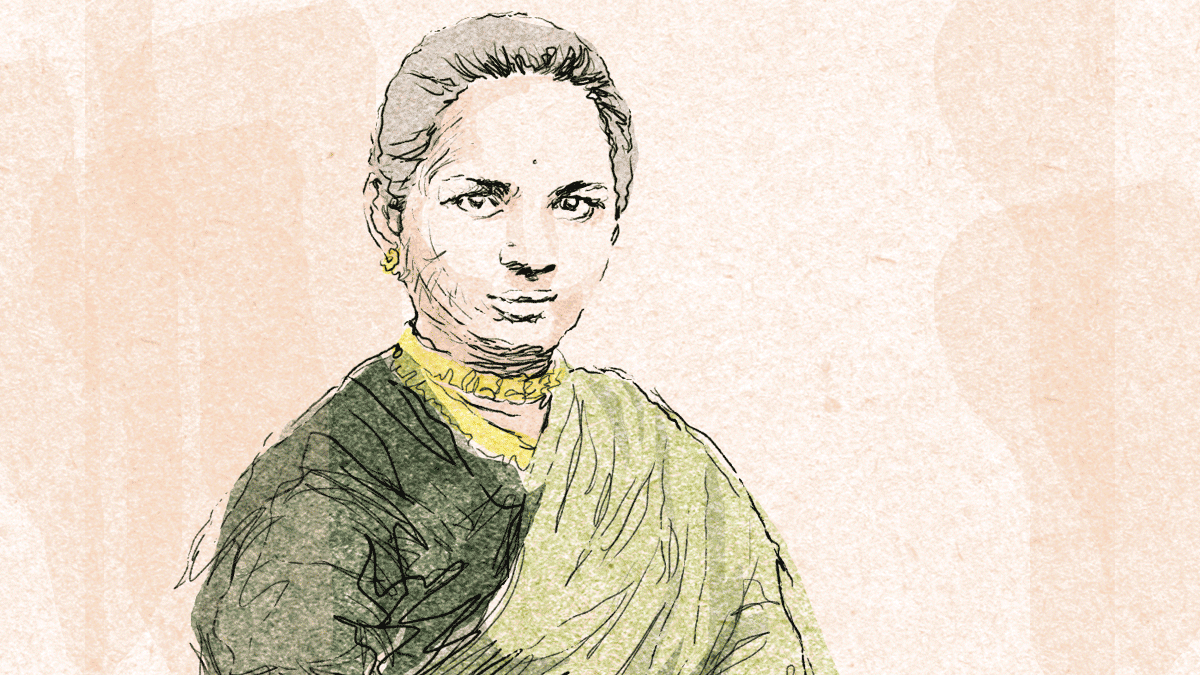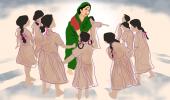This Women's Day week, we salute India's first lady doctor, Anandibai Gopal Joshi. Her achievement opened the gates of freedom and liberty for India's women.

Anandibai Gopalrao Joshi (1865-1887) was one of the first Indian women to obtain a degree in Western medicine. In the process, she became a symbol of resilience, determination and progress.
Her journey -- from growing up in a traditional household to earning a medical degree in the United States -- remains an inspiring story how she broke societal barriers and paved the way for women in India.
Born on March 31, 1865, in Kalyan, Maharashtra, Anandibai (originally named Yamuna) belonged to a Brahmin family that had fallen into financial hardship.
At the age of nine, she was married to Gopalrao Joshi, a widower nearly 20 years her senior.
Unlike most men of his time, Gopalrao was a staunch supporter of women's education.
He renamed his wife Anandi and encouraged her to study, a radical idea in a society where women were confined to domestic roles.
Anandibai's decision to become a doctor was driven by personal tragedy.
At the age of 14, she lost her newborn son due to lack of medical care. This devastating event convinced her that India desperately needed female doctors, as cultural norms prevented many women from seeking treatment from male physicians.
Encouraged by her husband, she resolved to study medicine and serve Indian women.
Gopalrao's efforts to secure a place for Anandibai in a foreign medical college led to correspondence with American missionaries.
Their story caught the attention of Theodicia Carpenter, a woman from New Jersey, who became Anandibai's benefactor.
With Carpenter's support, Anandibai was accepted into the Woman's Medical College of Pennsylvania.
In 1883 -- she was just 19 -- Anandibai set sail for the United States, an extraordinary step for an Indian woman of her time.
Before leaving, she delivered a speech at Serampore College in West Bengal, explaining her mission to study medicine and help Indian women.
Her departure sparked both admiration and controversy, with some in India opposing the idea of a woman travelling abroad for education.
Adjusting to life in America was difficult.
The cold climate, dietary changes and academic pressures took a toll on Anandibai's health.
Despite suffering from tuberculosis, she remained dedicated to her studies.
In 1886, she graduated with an MD, making history as one of India's first female doctors.
Her thesis, Obstetrics Among The Aryan Hindus, reflected her desire to combine modern medicine with Indian traditions.
Her achievement was widely celebrated and even Queen Victoria sent her a congratulatory note.
Upon returning to India in late 1886, Anandibai was appointed physician-in-charge of the female ward at the Albert Edward Hospital in Kolhapur. However, her health continued to decline due to tuberculosis.
She passed away on February 26, 1887 -- she was just 21 years old -- before she could fully practise medicine in her homeland.
Anandibai's pioneering efforts shattered barriers for women in India. She proved that women could excel in medicine and higher education, inspiring future generations to pursue their dreams despite societal norms.
Her contributions are honoured through the Anandibai Joshi Award for female medical practitioners.
Her life has been the subject of books, academic discussions and the 2019 Marathi film Anandi Gopal.
Anandibai Gopal Joshi remains a beacon of hope, demonstrating the power of education and perseverance in transforming lives.
Her legacy continues to inspire Indian women to break free from traditional constraints and pursue their ambitions.
Sources: Drexel University Legacy Center, History Of Scientific Women, &Asian
Women We Admire











 © 2025
© 2025